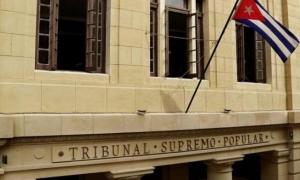
Last January 14, the Ministry of Foreign Affairs informed, by means of a statement, that in the spirit of the Ordinary Jubilee of 2025 declared by His Holiness Pope Francis, the decision was taken to benefit with the granting of freedom to 553 persons punished, in due process, for various crimes contemplated in the law.
He added that these releases would be carried out on the basis of a careful analysis, from the different modalities contemplated in the legislation, and as part of the fair and humanitarian nature of Cuba's penal and penitentiary systems, and that these people will receive their respective benefits gradually.
In an interview broadcast on Monday on Cuban Television, the vice-president of the People's Supreme Court (TSP), Maricela Sosa Ravelo, informed that this early release process had concluded satisfactorily.
But, what are the terms of this early release and what are the obligations to be fulfilled by these released persons?
In this regard, the Vice-President of the TSP explained that it is an obligation of the judge of execution of residence, where the sanctioned pers are located, to inform about their rights, projections and restrictions, as of their early release.
The law itself establishes, he said, that the enforcement judge summons these persons and makes an initial appearance, in which they are informed of their obligations.
Among these obligations is that they have to comply with the accessory sanctions imposed on them in the resolution, the fulfillment of the civil responsibility, the placement in employment or study for those who are apt for it, which is approved by the enforcement judge, he pointed out.
In the case of access to employment or study, Sosa Ravelo specified, the Ministries of Labor and Social Security and Education make proposals, although the sanctioned person may also request the court to approve another job in which he/she intends to work. He clarified that these benefits could be revoked if the released prisoners fail to comply with their obligations. They would then be returned to the penitentiary establishment to complete the remaining time of the sentence, given that this release is understood as a probationary period, when they have not yet served the entire sentence.
Therefore, he emphasized that the beneficiaries are obliged to comply with those requirements explained before the enforcement judge, as well as to maintain an adequate social behavior, in accordance with our socialist coexistence rules.
Among the causes that could mean a revocation of the early release benefit, the Vice-President of the TSP mentioned the non-incorporation to study or employment as appropriate, being fit to do so and without having presented justification, as well as the non-appearance before the execution judge on the appointed date, since the regulation of the law so establishes.















